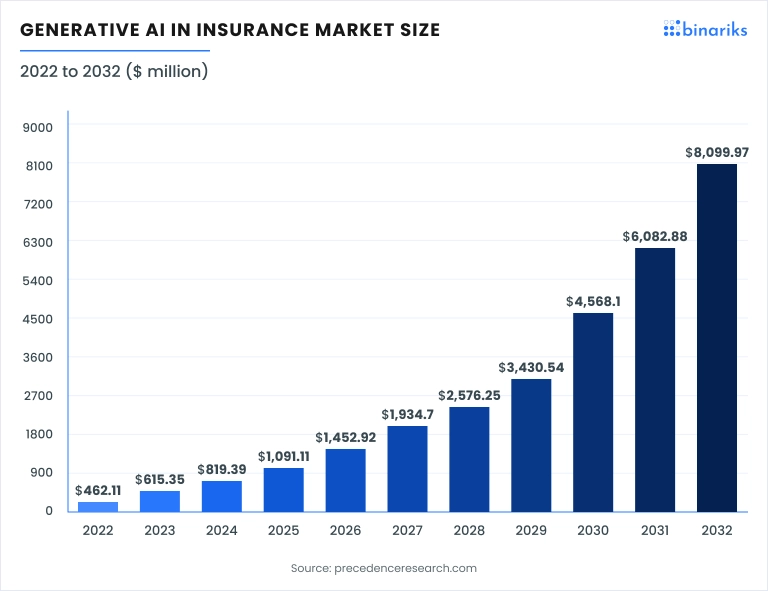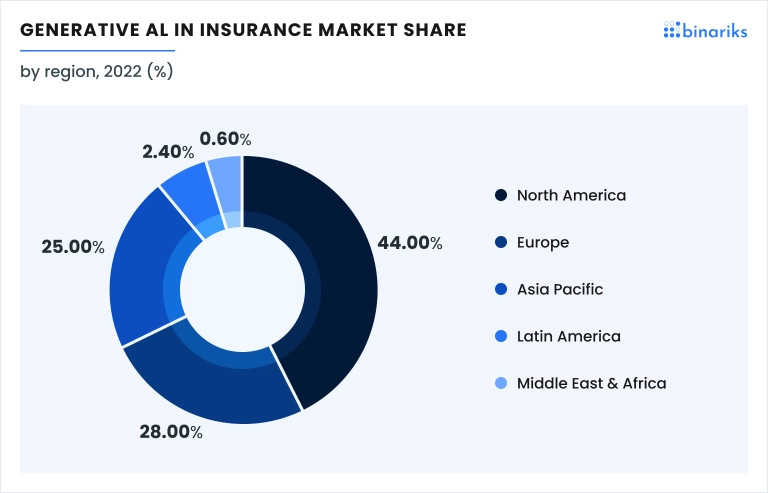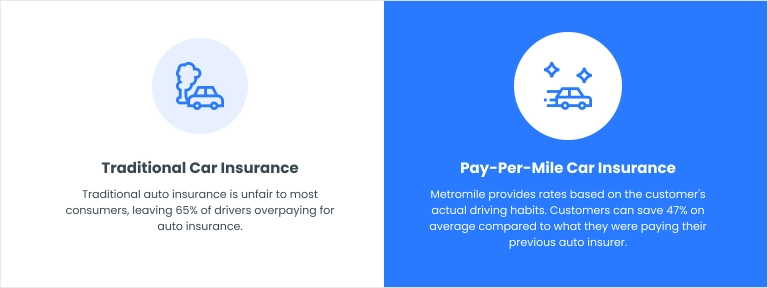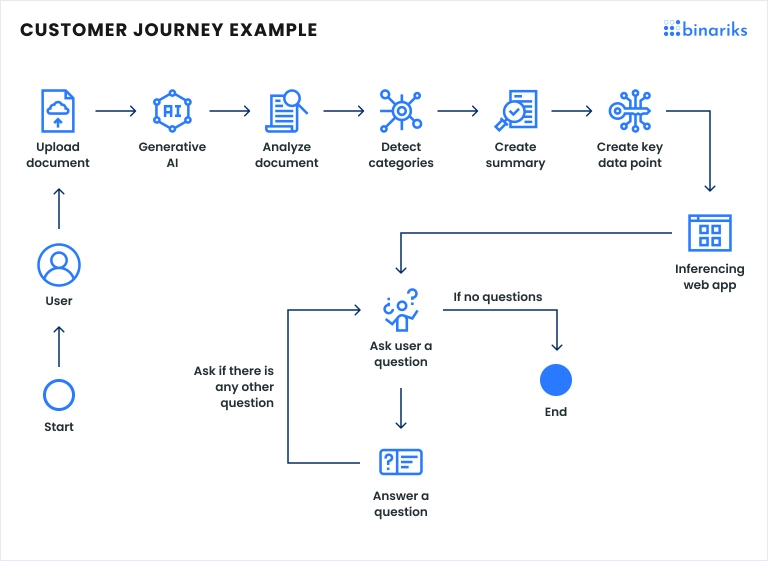The staid world of insurance, traditionally data-driven and risk-averse, is facing a potential paradigm shift. Artificial intelligence is making its way into insurance processes. This article explores how generative AI in insurance works, focusing on:
- Real-world applications: We'll delve into how generative AI streamlines workflows , enhances risk assessment, and even personalizes insurance products.
- Challenges and considerations: We'll dissect the hurdles that need to be addressed, including data bias and the explainability of AI decisions.
- Best practices for adoption: We'll offer practical guidance on generative AI for insurance companies navigating the implementation of generative AI solutions.
- The future outlook: We'll explore the potential long-term impact of generative AI on the insurance industry, examining its role in shaping a more efficient and customer-centric future.
You'll gain a clear understanding of how gen AI in insurance is changing the sphere, the challenges it presents, and the best practices for adopting this transformative technology in your company.
Transform your business with generative AI
Unlock AI insights and strategies with our comprehensive whitepaper
Meet the challenges of tomorrow with confidence

Is Gen AI needed in the modern insurance sector?
The modern insurance sector faces a multitude of challenges. Legacy systems can be cumbersome, data analysis is often time-consuming, and accurately assessing risk in a dynamic world is increasingly complex.
Generative AI presents a potential solution with its ability to process vast amounts of data and create new insights. But is it essential for the industry to thrive? Let's explore the areas where insurance companies use generative AI to address these challenges and potentially transform their operations. Here are some stats.
The global market size of generative artificial intelligence in insurance was estimated at USD 462.11 million in 2022, and it is expected to hit around USD 8,099.97 million by 2032, growing at a CAGR of 33.11% during the forecast period from 2023 to 2032.

North America led the insurance market in 2022 and is expected to maintain its dominance, driven by major insurers like Prudential Financial, MetLife, and Berkshire Hathaway. The US, followed by Canada, held the largest market share. Health insurance is a rapidly growing segment, fueled by increasing policyholders and the need for faster services to stay competitive.

A recent report by Sprout.ai highlights the growing adoption of generative AI in the insurance market, with 59% of organizations already implementing it. This trend reflects the potential benefits, including (Source ):
- Enhanced staff efficiency and productivity (61%)
- Improved customer service (48%)
- Cost savings (56%)
- Growth opportunities (48%)
The future impact of generative AI for insurance appears promising, particularly in customer service . According to insights from BCG, this area stands to benefit the most, with productivity potentially soaring by 40-60%.
This significant leap can be attributed to generative AI's ability to streamline information retrieval, which currently consumes up to 35% of an agent's workday. Additionally, document processing is expected to see efficiency gains of 20-30% thanks to automation.
However, the most significant cost savings will likely come from using generative AI in insurance claims automation. AI's ability to analyze data and generate insights could significantly reduce assessor-related expenses, a major cost driver for insurance companies (Source ).
While these projections paint an optimistic picture, it's worth examining how generative AI can address current challenges within the insurance industry. This will allow us to determine if it's truly a necessity or simply a promising future benefit.
Real-world use cases of generative AI in insurance
Now, let's delve deeper and discover how this technology pushes boundaries and creates even more transformative applications within the industry.
Enhanced risk assessment and underwriting
Generative AI can analyze vast amounts of information beyond the usual sources. Imagine incorporating weather patterns, traffic data, and even social media activity (with proper consent) to create a more comprehensive picture.
This allows for more nuanced risk profiles, potentially opening doors for previously uninsurable demographics and leading to fairer pricing for everyone.
Personalized policy creation
Gone are the days of one-size-fits-all policies.
Generative AI and insurance companies work together perfectly when analyzing a wealth of customer data, including demographics, smart home device usage, and past claims history, to automatically generate tailored insurance policies. This could lead to more relevant coverage options, potentially reducing costs for low-risk customers and ensuring coverage truly reflects individual needs.
Example: Metromile's pay-per-mile insurance model leverages AI to evaluate driving behavior, allowing for dynamic premium adjustments. "If you drive less, you should pay less," as simple as that.

Streamlined claims processing
Say goodbye to mountains of paperwork!
Gen AI for insurance claims processing can automate tedious tasks like document review, data extraction from claims forms, and even performing initial claim validation. This frees up insurance adjusters to focus on complex cases and expedite the entire claims processing journey, improving efficiency for both customers and companies.
24/7 customer service and engagement
Imagine having your insurance agent available anytime, anywhere.
Generative AI can power chatbots that can answer customer inquiries around the clock, schedule appointments, and even provide personalized insurance recommendations based on individual needs. This significantly improves customer satisfaction by offering a convenient and informative experience.
Example: Geico's virtual assistant, Kate, an AI-enabled mobile chatbot, assists customers with policy questions and updates around the clock.

Proactive risk mitigation
Generative AI can analyze data sets to identify potential risks before they occur. Imagine predicting weather patterns that could lead to property damage or analyzing traffic data to identify areas with high accident rates.
By proactively informing customers and offering preventative measures, insurance companies can not only minimize future claims but also cultivate a more proactive and risk-aware customer base.
Challenges of implementing generative AI in insurance
While generative AI offers many benefits, its implementation comes with its hurdles. Let's explore some key challenges that insurance companies need to address:
- Data quality and availability: Generative AI thrives on high-quality, diverse data sets. Insurance companies may need to invest in data collection and cleaning efforts to ensure accurate and unbiased AI models.
- Explainability and transparency: Understanding how AI models reach decisions is crucial. Without transparency, it can be challenging to trust AI-generated recommendations, especially for critical tasks like risk assessment .
- Regulatory compliance: The insurance industry is heavily regulated. Ensuring compliance with data privacy regulations and ethical AI practices requires careful consideration when implementing generative AI solutions.
- Integration with legacy systems: Many insurance companies rely on outdated legacy systems. Integrating generative AI solutions with these systems can be complex and require significant IT investment.
- Ethical considerations and bias: AI models can perpetuate societal biases present in their training data. Insurance companies must be vigilant in mitigating bias to ensure fair and ethical treatment for all customers.
Take your software to new heights with tailored AI/ML solutions
Best practices for adoption of Gen AI solutions in insurance
The challenges of implementing generative AI in insurance are real but manageable. Here are some best practices to guide successful adoption:
- Prioritize data quality: Invest in data collection strategies that gather high-quality, diverse data sets. Regularly clean and maintain data to minimize bias and ensure the accuracy of AI models.
- Focus on explainability: Develop interpretable AI models that allow for human oversight and understanding of the decision-making process. This builds trust and transparency in AI-generated recommendations.
- Embrace a compliance-first mindset: Partner with legal and regulatory experts to ensure compliance with data privacy regulations and ethical AI practices throughout the implementation process.
- Phased integration: Instead of a complete overhaul, consider a phased approach. Start by integrating generative AI solutions with specific processes within existing systems to minimize disruption and ensure a smooth transition.
- Build a culture of responsible AI: Educate employees about generative AI and its capabilities. Promote a culture of responsible AI use that prioritizes fairness, transparency, and ethical considerations throughout all stages of implementation.
By following these best practices, insurance companies can navigate the challenges and unlock the full potential of generative AI to transform the industry.
Embrace InsurTech innovation with custom software development
Future of generative AI in insurance
Generative AI is a rapidly evolving field, and its impact on insurance is only beginning. Here are some emerging trends and innovations that could reshape the industry in the years to come:
- Hyper-personalization: Generative AI could enable the creation of ultra-customized insurance products tailored to individual risk profiles and even real-time situations. Imagine dynamic car insurance premiums that adjust based on real-time traffic conditions or health insurance plans that adapt to your daily activity levels.
- Generative risk modeling: Generative AI could be used to create highly realistic simulations of potential risks, such as natural disasters or cyberattacks. This could lead to more accurate risk assessments and the development of innovative insurance products to mitigate emerging threats.
- AI-powered claims adjusters: Generative AI could potentially automate complex tasks currently handled by human adjusters, such as scene reconstruction or damage assessment. While human expertise would likely remain crucial for complex cases, AI could significantly expedite the claims process.
- Decentralized insurance: Generative AI could play a vital role in the growth of InsurTech, a branch of insurance that utilizes blockchain and other disruptive technologies. Imagine peer-to-peer insurance models where generative AI manages risk assessment, claims processing, and smart contracts execution.
Imagine a future where insurance seamlessly integrates into your daily life, proactively adapting to your needs and offering real-time protection. Generative AI could usher in an era of highly personalized, efficient, and accessible insurance for everyone. However, it's crucial to remember that ethical considerations and responsible development remain paramount.
If keeping our focus on transparency, fairness, and human oversight, generative AI can become a powerful tool for building a more secure and resilient future for the insurance industry, ensuring that our advancements are always in the client's best interest.
Conclusion
Gen AI in the insurance industry will take its place as companies can use it everywhere, from streamlining processes to personalizing policies and mitigating future risks.
Choose Binariks as your strategic partner to ensure you don't get left behind in this transformative journey. Our seasoned team of AI experts will guide you through each stage of generative AI implementation processes , including:
- Business analysis and AI technology strategy
- AI solution project planning
- Data preparation and cleaning for generative AI models
- Refining, testing, and evaluating ML models
- Generative AI-enabled development
- AI-enabled product and service development
- ML/AI solution quality assurance
- User training and documentation
- AI/ML solution support and optimization
Embrace the future of insurance with generative AI. Contact Binariks today and schedule a consultation to discuss how we can help you unlock the full potential of this disruptive technology!
Share

